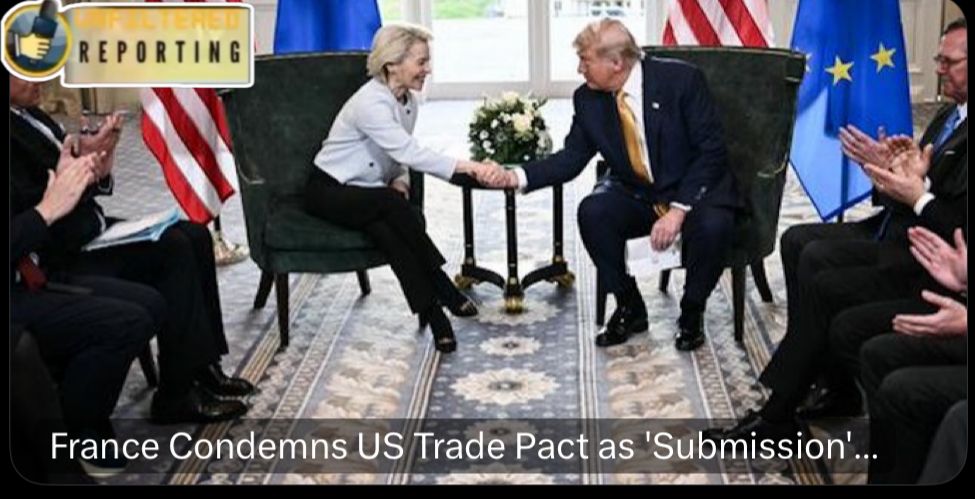France has strongly criticised a newly concluded trade agreement between the European Union and the United States, calling it a “strategic concession” to Washington. The criticism stands in sharp contrast to the generally positive reception the deal received from several other EU member states, who view it as a significant step toward bolstering transatlantic economic ties. The trade agreement, announced in Brussels on Monday, aims to ease longstanding trade tensions between the EU and the U.S., with provisions on tariffs, regulatory cooperation, and coordination on green technologies, semiconductors, and critical raw materials. Supporters of the deal describe it as a pragmatic response to increasing global competition, particularly from China. France, however, emerged as a vocal opponent. French Trade Minister Franck Riester condemned the agreement, saying it disproportionately favours American interests at the expense of European economic sovereignty. He warned that key sectors such as agriculture, clean energy, and manufacturing could be undermined by terms that reduce protections and increase reliance on U.S. imports. “We cannot accept an agreement that effectively undermines our ability to defend European standards and protect our industries,” Riester said at a press briefing in Paris. “This is not a balanced deal; it is a strategic surrender to Washington.” The French government argued that the agreement concedes too much on state aid rules, product certification, and agricultural imports that may not meet EU safety standards. It also expressed concern that the deal could weaken the EU’s ability to maintain independent climate and digital policies. Despite France’s opposition, other EU countries including Germany, the Netherlands, Ireland, and Sweden welcomed the agreement. German Economy Minister Robert Habeck described the deal as “timely and necessary,” noting that it would provide economic stability and reduce trade friction at a time of growing uncertainty. “Cooperation with the United States is vital for our long-term economic resilience,” Habeck said. “This agreement helps reduce friction and sets a foundation for future growth and innovation.” The European Commission defended the agreement, saying it protects the EU’s regulatory autonomy while opening new opportunities for European exporters. A Commission spokesperson said the pact includes safeguards for fair competition and provisions to jointly address labour and environmental standards. Although the deal must still be approved by EU member states and the European Parliament before taking effect, France is expected to continue pressing for revisions or guarantees that would address its concerns. Analysts say the disagreement reveals ongoing tensions within the EU over how closely the bloc should align with the U.S. on economic policy. While the trade deal moves forward, the divide signals potential challenges for future EU trade and industrial strategy.










